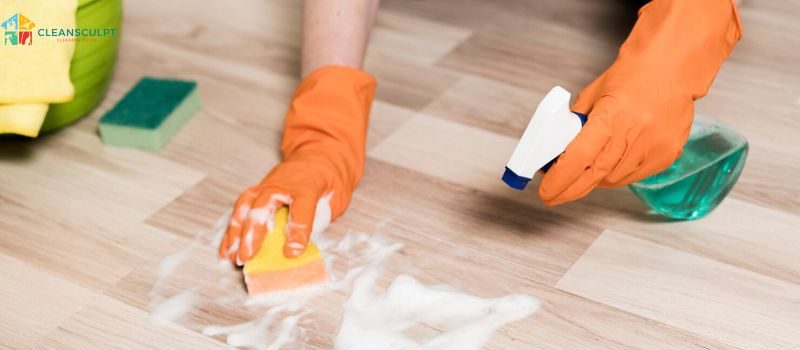Choosing the right floor mat cleaner is crucial for maintaining the cleanliness and longevity of your mats. Whether it’s for your home or business, understanding which products and techniques work best can ensure your mats stay pristine and hygienic.
Types of Floor Mats and Their Cleaning Needs
Floor mats come in various materials, each requiring specific care to maintain their appearance and functionality.
Rubber Mats
Rubber mats are durable and ideal for high-traffic areas. Use a cleaner that can tackle dirt without degrading the material.
Carpet Mats
Carpet mats absorb moisture and capture dirt. They need a cleaner that can penetrate fibers without leaving residue.
Polypropylene Mats
These mats are stain-resistant and perfect for outdoor use. They require a cleaner that can remove tough grime without fading the material.
Choosing the Right Floor Mat Cleaner
Type of Dirt and Stains
Consider the common types of dirt and stains your mats are exposed to. For entry mats that might collect mud, sand, and water, you need a robust cleaner that can tackle heavy soil. For mats in areas like kitchens or industrial settings, a cleaner capable of cutting through oils and greasy residues will be more appropriate.
Eco-Friendly Options
If environmental impact is a concern for you, look for eco-friendly floor mat cleaners. These products typically avoid harsh chemicals like phosphates, chlorine, and ammonia, which can be harmful to both the environment and human health. Instead, they use natural enzymes or plant-based ingredients that are biodegradable and safer for use around pets and children.
pH Balance
The pH level of a cleaner affects its ability to clean certain types of soils and its safety on certain materials. Neutral pH cleaners are safe for most materials and are effective for light to moderate soil. Acidic cleaners may be needed for mineral deposits and rust, whereas alkaline cleaners are better for oils, fats, and proteins.
Concentration and Cost-Effectiveness
Some floor mat cleaners come concentrated and require dilution before use, which can be more cost-effective over time, especially for high-traffic areas that necessitate frequent cleaning. Calculate the cost per usable gallon to compare the real value of cleaners.
User Reviews and Recommendations
Before making a final decision, check online reviews and testimonials from other users who have similar needs. This can provide insight into how effective a cleaner is in real-world conditions and any issues users might have encountered.
Table: Comparison of Popular Floor Mat Cleaners
Brand | Type | Suitable for |
CleanMax Pro | Liquid | All Mat Types |
EcoPure Shine | Spray | Indoor Mats |
Grime Buster | Foam | Rubber and Vinyl |
Nature’s Clean | Concentrate | Carpet Mats |
How to Use Floor Mat Cleaners Effectively
Follow these steps to ensure effective cleaning:
- Remove loose dirt by shaking or vacuuming the mat.
- Apply the floor mat cleaner according to the instructions.
- Scrub if necessary, depending on the mat type.
- Rinse thoroughly to remove any soap residue.
- Allow the mat to air dry completely to prevent mildew.

Maintenance Tips to Extend the Life of Your Floor Mats
Regular cleaning with a good floor mat cleaner is essential, but maintenance doesn’t stop there. Here’s how you can keep your mats in top condition:
- Rotate mats to ensure even wear.
- Treat stains immediately to prevent permanent damage.
- Store mats properly if not in use for extended periods.
Promoting a Cleaner Environment with Your Floor Mat
By keeping your floor mats clean, you contribute to a healthier environment by reducing the spread of dirt and allergens.
FAQs About Floor Mat Cleaners
What makes a floor mat cleaner eco-friendly?
Eco-friendly cleaners typically contain natural ingredients that are less harmful to the environment. They avoid harsh chemicals, promoting healthier living spaces.
Can I use the same cleaner for all types of floor mats?
While some cleaners are versatile, it’s best to use products designed for the specific material of your mat to avoid damage.
How often should I clean my floor mats?
The cleaning frequency depends on the usage and location of the mat. High-traffic areas might need weekly cleaning, while others may be less frequent.
Are there any homemade floor mat cleaner solutions?
Yes, a simple mixture of vinegar and water can be effective for many types of mats. Add essential oils for a pleasant fragrance and additional cleaning power.
What should I avoid when cleaning floor mats?
Avoid using too much water on mats that are susceptible to water damage, and steer clear of harsh chemicals that can degrade the mat fibers.
How can I remove tough stains from my floor mats?
Pre-treat stains with a mixture of baking soda and water before applying your regular floor mat cleaner to enhance stain removal.
What is the best way to dry floor mats after washing?
Air drying is ideal. Hang the mats in a well-ventilated area or outside to ensure they dry completely and prevent mildew growth.
Conclusion
Right floor mat cleaner and following best practices can dramatically extend the life of your floor mats. For more cleaning insights and guides, visit our blog at Clean Sculpt, where we sculpt your understanding of clean!

